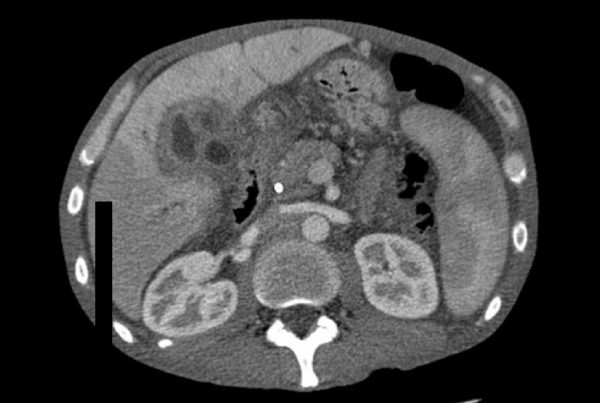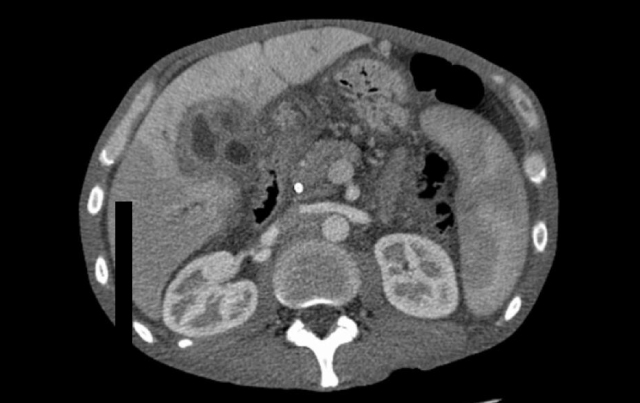Radioembolization: An Option for Colorectal Cancer Patients with Liver Metastases

Radioembolization may offer a palliative treatment option for patients with metastatic colorectal cancer or primary hepatocellular carcinoma (HCC). The treatment is an extension of the perhaps better-known chemoembolization procedure, says Rolf K. Hultsch, MD, interventional radiologist at Scottsdale Medical Imaging Ltd. “The fundamental difference is that beta radiation emitting yttrium particles are infused into the liver instead of chemotherapeutic agents,” Hultsch says.
 Radioembolization may offer a palliative treatment option for patients with metastatic colorectal cancer or primary hepatocellular carcinoma (HCC). The treatment is an extension of the perhaps better-known chemoembolization procedure, says Rolf K. Hultsch, MD, interventional radiologist at Scottsdale Medical Imaging Ltd. (SMIL).
Radioembolization may offer a palliative treatment option for patients with metastatic colorectal cancer or primary hepatocellular carcinoma (HCC). The treatment is an extension of the perhaps better-known chemoembolization procedure, says Rolf K. Hultsch, MD, interventional radiologist at Scottsdale Medical Imaging Ltd. (SMIL).
“The fundamental difference is that beta radiation emitting yttrium particles are infused into the liver instead of chemotherapeutic agents,” Hultsch says. “Another way to look at this treatment is as a whole liver brachytherapy. Radioembolization treatments offer patients who have undergone multiple rounds of chemotherapy an additional treatment option.
Although the treatment was FDA-approved in 2002, it hasn’t been routinely used in clinics until the last five or six years, Hultsch says. “The reality in 2012 is that these treatments are generally used after chemotherapies have failed,” Hultsch adds. That may change, however, as SMIL is participating in a multicenter trial evaluating its use as first-line therapy in conjunction with
simultaneous chemotherapy for hepatic-dominant colorectal metastases.
“Many series have been published, consistently showing positive radiographic response to yttrium treatment, but there is a great need to take this further to better understand the survival benefit,” Hultsch says. “A survival benefit was demonstrated in an early trial which led to FDA approval, but that was a relatively small series and needs updating.”
The treatment is generally well tolerated as shown in a December 2011 study by researchers at Case Western University School of Medicine. While the study of 73 patients treated with either yttrium-90 radioembolization or chemoembolization showed little difference in survival between the two treatments, patients in the radioembolization group had significantly lower rates of hospitalization due to postembolization syndrome.
“There is a short list of complications unique to this procedure, most notably gastric ulceration, but that risk is minimized by meticulous attention to detail during embolization,” Hultsch says. “Subtle anatomic variants which otherwise have no clinical significance become very important when evaluating a patient for this procedure. I am proud of our safety track record over the roughly six years we’ve been offering this therapy. Certainly this is not a procedure that every hospital offers, in large part because of the special technical expertise required.”
SOURCE:
Lance Craig, McLennan Gordon, Obuchowski Nancy, et al. Comparative analysis of the safety and
efficacy of trans-catheter arterial chemoembolization and Yttrium-90 radioembolization in patients
with unresectable hepatocellular carcinoma. Journal of Vascular and Interventional Radiology.
2011;22(12):1697-1705.


